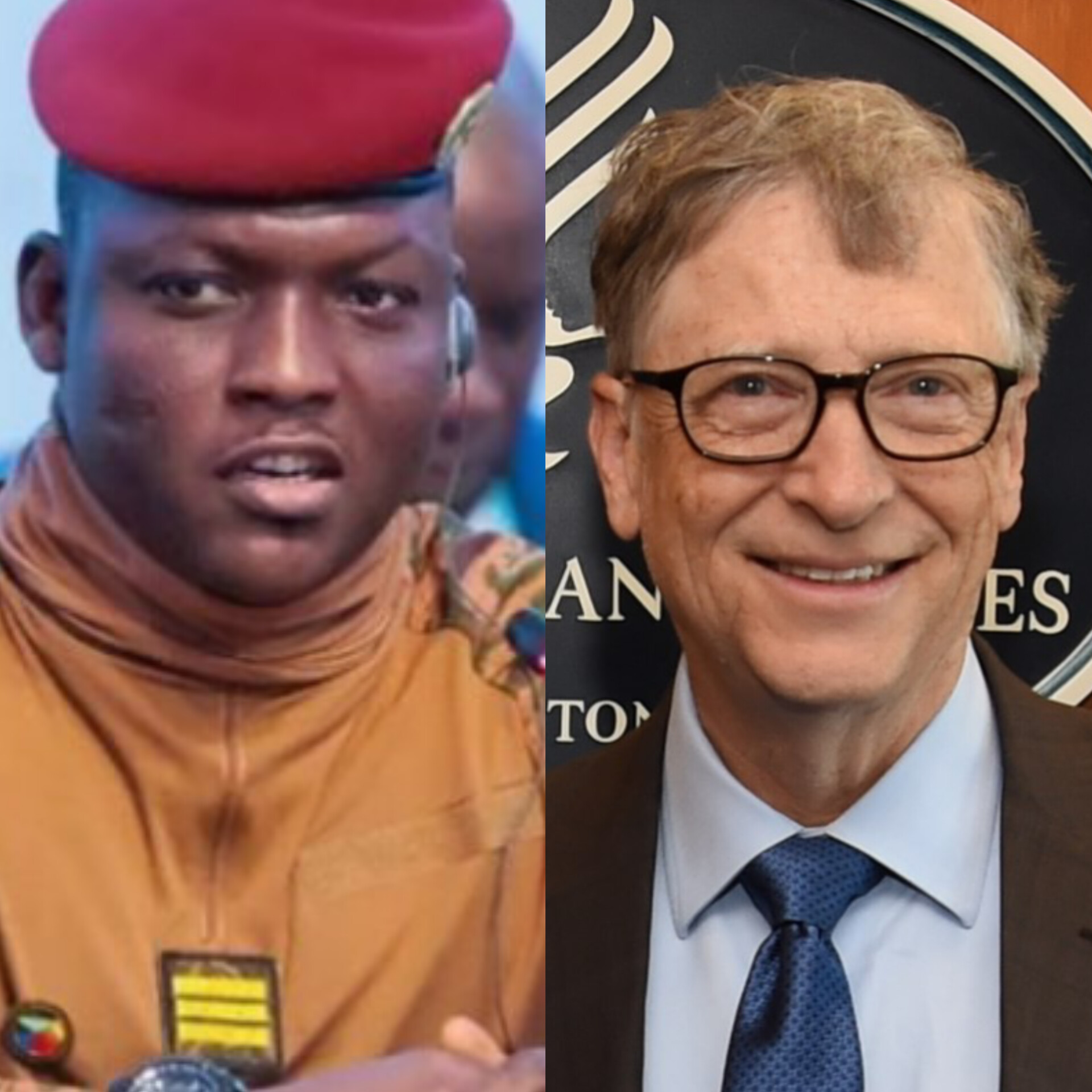Ouagadougou, Burkina Faso — In a bold and unprecedented move, Burkina Faso’s President Ibrahim Traoré has declared an immediate end to all activities by the Target Malaria Foundation, an NGO backed by the Bill and Melinda Gates Foundation and Open Philanthropy. The decision marks a significant shift in the country’s stance toward foreign-funded health initiatives, especially those related to reproductive technology and public health interventions.
Thank you for reading this post, don’t forget to subscribe!
Speaking in a nationally televised address, President Traoré issued a sharp critique of the foundation’s operations, expressing deep skepticism about its motives.
“The activities of the Target Malaria Foundation, funded by the Bill and Melinda Gates Foundation, appear to be a Trojan Horse. While presented as aid, they seem to conceal harmful motives for the people of Burkina Faso,” Traoré said.
At the heart of the controversy lies the promotion of hormonal intrauterine devices (IUDs), which the government alleges are being subtly introduced under the guise of health and population control. President Traoré questioned whether such initiatives genuinely serve the well-being of Burkinabè women or are part of a larger, more troubling agenda.
“The population of Burkina Faso, though small, is vibrant and growing in both productivity and reproduction,” Traoré continued. “Any attempt to hinder our reproductive freedom would be a grave injustice.”
A Sovereign Stand
The statement, delivered with conviction, aligns with a growing sentiment of self-determination sweeping across parts of Africa, particularly the Sahel region. Leaders, including Traoré, have voiced concerns over the legacy of foreign intervention in both policy and development, urging a reevaluation of partnerships that may compromise sovereignty.
This announcement is expected to significantly impact Target Malaria, a scientific research consortium that has conducted field trials involving genetically modified mosquitoes to combat malaria. While the organization frames its mission as a life-saving public health endeavor, critics argue that the local population has not been adequately informed or consulted about potential long-term consequences.
Gates Foundation Under Scrutiny
The Bill and Melinda Gates Foundation, one of the world’s largest philanthropic organizations, has invested heavily in global health initiatives. However, its involvement in reproductive health programs across the Global South has long stirred controversy.
Some advocacy groups accuse the foundation of pushing population control measures without full transparency or cultural sensitivity.
With this move, Burkina Faso joins a growing chorus of voices demanding a more critical look at how philanthropic capital influences health and population policy in the developing world.
What Comes Next?
President Traoré has called on other African nations to review similar partnerships and place national interest and cultural values above foreign influence.
Whether this decision will spark a broader reassessment of foreign aid and public health initiatives across the continent remains to be seen. But for now, Burkina Faso has drawn a clear line in the sand: the health and autonomy of its people are not negotiable.
Kindly share

